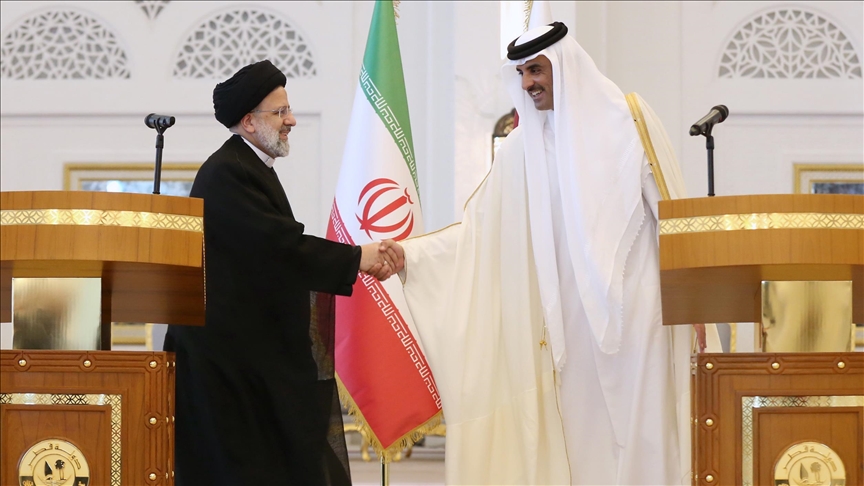The two sides will also witness the first Iran-Qatar Trade Conference which is set to be held on the sidelines of the meeting.
Iran’s Energy Minister Ali-Akbar Mehrabian is due to visit Qatar with an accompanying delegation 7 June to mark the eighth meeting of Iran-Qatar Joint Economic Commission.
The meeting will explore the possible routes of bilateral cooperation through five committees including, namely economic, commercial and industrial, banking and finance, transportation and information technology, scientific, health, culture, sports and tourism, and water and energy.
Separately, the first Iran-Qatar Trade Conference will also be held on the sidelines of the meeting, according to Mehr News Agency.
This comes following the Amir Sheikh Tamim bin Hamad Al Thani’s visit to Tehran on May 12, where he met with top Iranian state officials, including Supreme Leader of Iran Ayatollah Ali Khamenei and President Ebrahim Raisi.
Commenting on relations between the two countries, Khamenei said: “The current level of economic relations between the two countries is low and must be multiplied,” according to the supreme leader’s official website.
Iran has been attempting to boost its relations with regional nations under the current Raisi administration, with the back and forth visit of top diplomats from the countries seen a testament to such efforts.
Since the start of the year, the two sides have witnessed a number of collaboration efforts in the fields of tourism, education, and energy among several other sectors.
Tehran’s foreign policy to the Gulf Cooperation Council under the current office is “not fundamentally different — except that the relationship has shifted a little in the direction of greater pragmatism due to the GCC states’ (or at least Manama’s, Riyadh’s and Abu Dhabi’s) own shift towards such a position,” Dr Gerd Nonneman, professor of International Relations and Gulf Studies at Georgetown University Qatar told Doha News.
Iranian expert, Hassan Hanizadeh said Qatar is the diplomatic link that could potentially connect Tehran to the GCC, as per an Islamic Republic News Agency’s report.
The 13th administration began working with some GCC member states when current Iranian president announced in the first few days of his presidency that Tehran was ready to interact with neighbours.
As a GCC member, “Qatar has had a proper relationship with Iran based on mutual respect for the last four decades, serving as a connecting link between Tehran and the PGCC,” Hanizadeh continued.
Regarding the relations exchanged between the two Persian Gulf nations, President Raisi said in February: “Determining specific goals and time to achieve these goals will be in the direction of expanding bilateral interactions and diligently pursuing these goals by the relevant officials in the two countries, especially the heads of the Joint Economic Cooperation Commissions of Iran and Qatar.”
While referring to the impact of the Covid-19 pandemic on the meetings of the Iran-Qatar Joint Economic Cooperation Commission in the last two years, Qatar’s Amir Sheikh Tamim bin Hamad Al Thani noted: “Qatar is determined to develop its relations with Iran based on historical and deep-rooted interaction between the two nations, and we will no longer allow any issue, including the COVID-19 pandemic, to hinder the advancement of this goal,” according to the official website of Iran’s presidency.
Previous Iran-Qatar joint Economic Commission
During the seventh edition of the meeting held in late November 2020 in Isfahan, Iran and Qatar saw the signing of a Memorandum of Understanding (MoU) centred around cooperation in a number of areas.
Based on the MoU, the two sides agreed to cooperate in forming a joint trade working group between the two nations, establishing trade centres between the private sectors of both sides, and establishing commercial affiliates in the embassies of both Tehran and Doha. The agreement also covered the context of using the ports of the two countries to expand export and import activities.
The MoU also entailed cooperation in the fields of pharmaceutical and medical equipment, higher education and scientific research, transit and transportation of goods, communications and information technology, as well as protection and maintenance of fibre-optic cables through submarines.







